The effects of a new drug-driving law passed by Parliament yesterday, which ignores the science around testing for impairment, will be felt mostly by the poor and already oppressed. The middle classes will just Uber their way around it.
The Land Transport (Drugged Driving) Amendment Act imposes a new testing regime on Kiwi drivers, with fines for lower residues of drugs and criminal charges for higher amounts.
While no one wants impaired drivers on the road (NORML has promoted it’s Principles of Responsible Cannabis Use, which includes ‘No Driving’, since 1996), this law had gone from ‘pretty good‘ to pretty bad.
The way people roll the dice will determine what penalty, if any, they face.
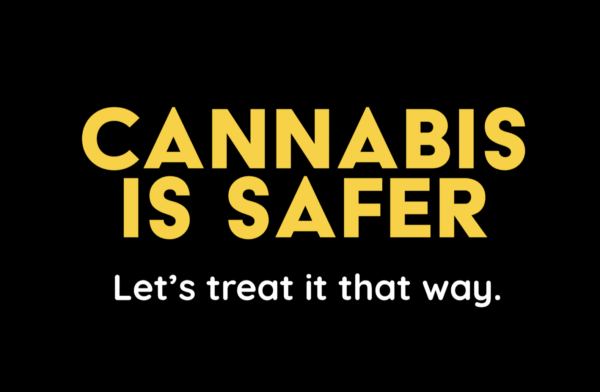
Saliva tests
Most drivers will first be asked to perform two saliva tests. Or they can ask for a blood test – but that could come back on them, because while failing a saliva test will attract a fine, failing a blood test could result in court proceedings and a criminal conviction.
The saliva testing devices will be set at 1ng THC, and of the list of 25 drugs – both illicit and prescription medicines – the device will pick up just five others (meth, MDMA, benzos, cocaine, opiates).
You must fail two saliva tests, because the test devices themselves are somewhat unreliable. Failing the saliva test attracts a fine, and a ban on driving for 12 hours.
It’s important to note that the device is set at 1ng THC not because any science says that is the level of impairment, but because that’s the device they could find.
The expert committee charged with determining what levels equate to impairment gave up – because the science says it’s actually very difficult to pick one number for everyone, especially when it comes to cannabis.
So instead, they just went with the device sold in Australia. It’s not based on impairment, but it will pick up what someone consumed yesterday.
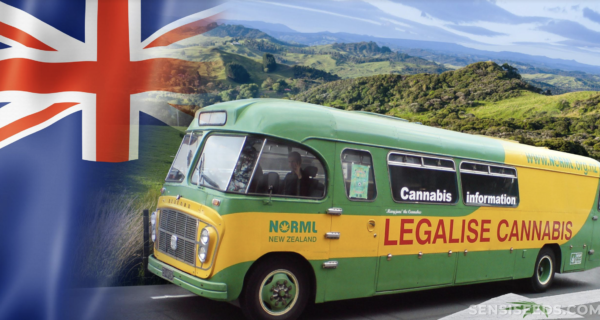
Field Sobriety Tests
However the new law allows any police officer who is trained to give the test, to require anyone driving to perform a compulsory impairment test – commonly known as a Field Sobriety Test – instead of the saliva tests.
This involves tasks like standing on one leg and touching your nose, walking a straight line, correctly estimating 30 seconds elapsed, and so on.
These can be accurate if overseen by a trained officer. But they can also be quite difficult for many people, take up to 40 minutes to perform, and are mostly subjective to observe and score. A significant number of sober people will fail them, and NZ police don’t have body- or dash-cam footage for defendants to review. Failing the field test means a blood test.
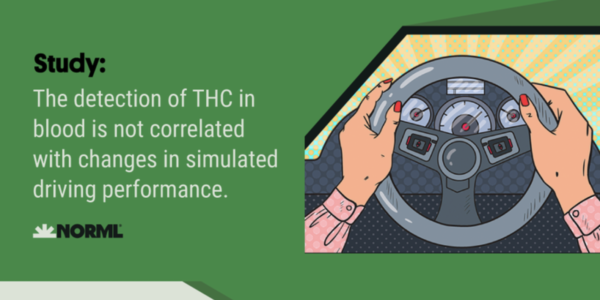
Blood tests
Any driver who fails the field sobriety test, or who refuses to perform a saliva test, or who fails two saliva tests and elects to do so, will have a blood sample taken and tested.
The blood test will be evidential and can be used in court against you. If a driver is found to be above the ‘tolerance level‘ (again, 1ng for THC), they will be fined.
If they are above the ‘high risk’ criminal level (3ng for THC) they can be charged in court and convicted.
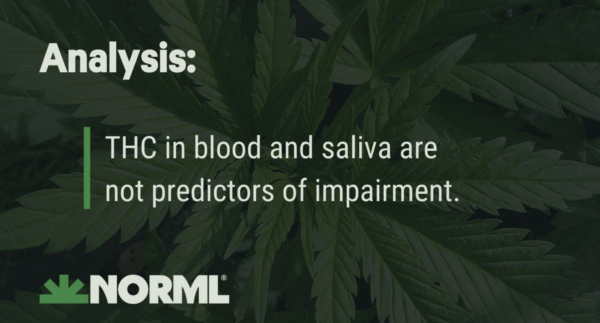
Lack of science
The levels set in the new law do not equate to impairment. A person testing over these levels could be impaired, but maybe they’re not. In particular, residues of cannabis consumption can linger for hours or even days after past use.
To be fair, a blood test is way better than workplace-style urine testing, which detects cannabis use for up to four months after last use. The saliva and blood tests will also pick up only the active ingredient (THC), whereas urine testing detects the inactive metabolite (THC-COOH) remaining after use.
But a regular cannabis user may still find they fail the proposed tests the day after their last use. A heavy user, such as many patients who use medicinal cannabis, may find they test above 1ng or 3ng for much longer.
The levels are not only set too low, but the science says picking any number for cannabis is problematic and does not actually equate to impairment. Everyone is different.
For example prior studies have shown that while THC inhalation is associated with changes in driving behaviour, such as an increased likelihood of weaving, but also a decrease in drivers’ average speed.
These and other changes are typically less pronounced in people who are regular cannabis consumers, but they may be exacerbated when alcohol and cannabis are ingested in combination with one another.
Different strokes
Alcohol drinkers, meanwhile, have a testing regime much more closely aligned to actual impairment, and the science to back it.
Medical users have a defence if they are following their doctor’s orders – the same as any other prescription medicine. But you can expect prescriptions to now have explicit instructions to not drive for X hours (and ‘X’ will vary depending on the doctor). CBD is not covered, because it is not psychoactive and not associated with driving performance.
Looking to Australia and America, the middle classes who enjoy a toke or some molly at the ol’ dinner party will just use Uber to get everywhere. Passengers aren’t covered by this law.
Anyone who can afford it will opt to pay the fine, every time. There’s no criminal record, just loss of driving and another bill they can afford.
But if you can’t afford it, or the cops don’t like the way you look, those low levels set for tests will mean easy convictions and much larger impacts.
The poor and the brown, yet again, will bear the brunt of this drug law enforcement.

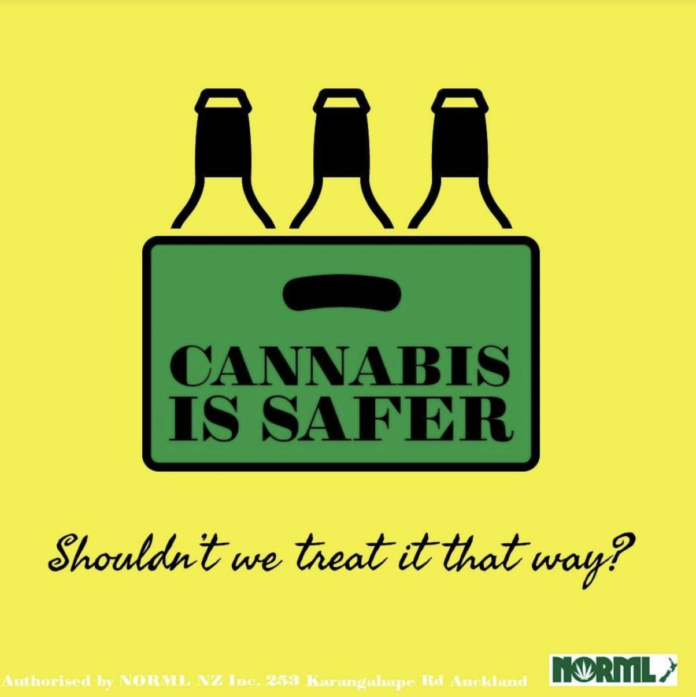


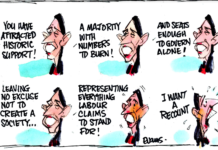
This roadside testing regime was never going to be about addressing actual impairment, because it is too hard. What we wind up with is further oppression.
Thanks Labour, you did great…
does dope affect your cognitive abilities? right, set the limit at zero(for alcohol too) and don’t accept the defence of ‘oh it was last night’…that way all doubts around efficacy and accuracy of tests is by the by.
(unless you like poppy seed bagels)
end of, and moving on…
Yep Zero is the best limit then it is black and white, no room for smart arsed lawyers to get involved.
But you can have THC in your system and NOT be impaired. The impairment for THC is immediately after use – not the next day or week. Why then is this being pushed through – Thanks Labour!
Also we know the Nats don’t support it so what is left?
every drunk driver on the planet says..’I driver better with a few in me’.
if the impairment for THC is so short lived, why is zero a problem after all if you’re right it should be dissipated by the time you head home and certainly by next morning.
I’m not against dope, hell put you want in your body but it’s not a universal panacea
Who the hell is counseling Dr Do-little? I really want to know so if anyone’s got some name, wanna pass them on – this is just getting stooopid…
Same with both blood alcohol and speed limits – the numbers applied are arbitrary and vary from country to country.
Nobody is being oppressed by this: People have ‘agency’ and thus the power to make their own decisions.
People who used cannabis yesterday or last week ARE being oppressed by this law as they are NOT impaired by their drug of choice in any way. Would you be happy to be convicted of drunk driving if you had not consumed for a week?
Exactly Bob – well put. I do not advocate for illegal drug use and driving but the way I see it, the key word is impairment. Just because you might have illegal drugs in your system does not necessarily mean you are an impaired driver. There should be a correlation between the level of the particular drug in the system and impairment.
I found this abstract of a study on the issue. I appreciate it is but one study of probably many but in effect it supports what you say Bob.
https://pubmed.ncbi.nlm.nih.gov/16343411/
Of course, if there is no limitation on what constitutes impairment then the law itself will be open to abuse and as Chris Fowlie has rightly said – “The poor and the brown, yet again, will bear the brunt of this drug law enforcement”.
The key phrase in your post is “illegal drugs”
Like as if someone is trying to tell you something…..
so andy you favour a return to the white line tightrope walk and ‘the leith police dismisseth us’?
Andy stop talking shit mate we all know who the Police are more likely to pull over.
1ng is 1 nanogram.
1 nanogram = one thousand-millionth of a gram.
Iml is 1 millilitre.
1 millilitre = one thousandth of a litre .
GHB (date rape drug) is at 50,000ng/ml as compared to, say zopiclone at 50ng/ml.
This does seem to be a little bit odd.
Thank you Chris for your report.
Can anybody remember the last time government followed the science?
Most MP’s would not even know the meaning of the word science,
To think this started when Julie Ann Genter was made associate transport minister so at the end of the day we have an medical industry run by corporations and expensive prices while the rest of us still run the gauntlet with the police who have now started their chopper spraying again and mouth swabs thanks to the greens.
We elected these narcissists to fix this, not break it some more.
I think that a lot of our laws are shaped by prejudice and ill informed people who just want to apply their authoritarian ideas to keep others from having something they want; they never had it so why should anyone else. Often they have a religious bent or perhaps some idea of correctness as ordained by someone in the past. Stop them. No. Do as I say, is their first and only response.
Those with a different point of view can try to point out the fallacies, point out the advantages of change but Pater and Mater have made up their mind. You shall not go to the ball Cinderella. But, but,… Quiet go to your room and stay there till we call you. That’s what they would like to say. That’s what their instincts are because they Know Best. There is a prohibitory response in NZ that goes beyond what could be called conservative, that dislikes more than the slight change from the norm. It’s part of how fashion works, one or two people who have suitable notoriety do something, then the hoi polloi want to do it as well.
I have been on the positive side of police discretion more than once. Way more than once.
Because I am a good kid with common sense, came from a good family, spoke well, was polite and gave good vibes to the officer, and was not very impaired, I’m not sure why?
Every now and then is a story in the media of a stoner couple in a high speed accident and everyone dies including the 3 kids, due to driver impairment. Usually fatigue is more at fault, but you cant prosecute someone for fatigue.
As long as the problem people are targeted by this new law, and as long as discretion is applied to cheerful but relatively safe stoners, the better.
This law was always coming. Lets hope the NZ Police apply it with good common sense.
Grass doesn’t help your driving but disallowing grass is a discrimination against the poor. Labour should correct that.
Who are Labour?! Knuckles my brow. The experts up there who don’t know down here.
don’t worry, soon the poor won’t be able to afford to drive at all
Our police are already struggling to do their jobs this policy has the potential to put more Maori in courts and prison. A dumb policy not thought out about the repercussions. THC for example can be present but as mentioned it does not mean a person is impaired. Our Police who can be racist will pull over more of us brown people ethnic profiling.
Andy stop talking shit mate we all know who the Police are more likely to pull over.
You’re thinking is wrong.
The cops can pull me over all they like, because I’m sober, I have a clean driving licence and the car has an up to date Rego and WoF. And that, my friend, is why they don’t bother to pull me over.
I refer you to my previous post
IT fades quickly or it doesn’t you can’t have it both ways
All the time the Govt. is raking in huge taxes from alcohol and tobacco sales, they aint gonna legalise it, just do it and tell the man to focus on REAL crime…
Comments are closed.